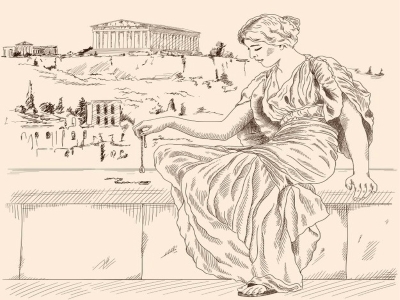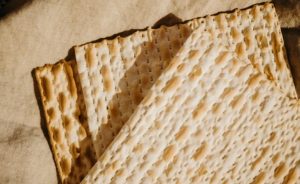Last month, we had the pleasure of writing two amazing Hanukkah articles for you – the first one on the Story of Hanukkah and the second on Lesser-Known Hanukkah Facts, however, while we were able to cover a lot of stuff in those two blogs, we still felt that there was something missing from them that we needed to share, so we secretly wrote another great article for you and waited until the holidays got closer to finally reveal our third and final installment to this year’s special three-part Hanukkah series!
 For this article, we’re going to be looking at the fascinating story of a legendary female figure from Jewish history, someone who is traditionally spoken about during Hanukkah even though she had no direct influence on the classic Hanukkah narrative. Although her only apparent connection to the holiday seems to come from early speculative beliefs suggesting that her heroic deeds may have unfolded somewhere in the background of the Maccabean Revolt, nevertheless, this famous woman is still widely celebrated as a major Hanukkah icon so continue reading to learn all that there is to know about the epic tale of Yehudit, the remarkable woman who saved a city by being as brave as a Maccabee!
For this article, we’re going to be looking at the fascinating story of a legendary female figure from Jewish history, someone who is traditionally spoken about during Hanukkah even though she had no direct influence on the classic Hanukkah narrative. Although her only apparent connection to the holiday seems to come from early speculative beliefs suggesting that her heroic deeds may have unfolded somewhere in the background of the Maccabean Revolt, nevertheless, this famous woman is still widely celebrated as a major Hanukkah icon so continue reading to learn all that there is to know about the epic tale of Yehudit, the remarkable woman who saved a city by being as brave as a Maccabee!
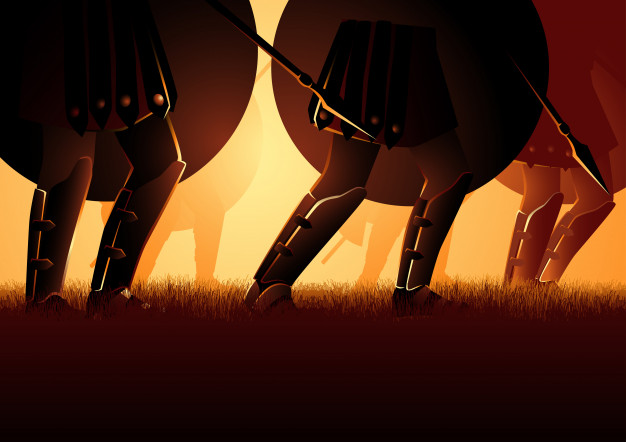 Not to be confused with the other famous Jewish heroine, Yael, the prophetess who slew the mighty Canaanite commander Sisera with a tent peg; Yehudit was a different heroine whose bravery and initiative saved her besieged city from certain death and destruction. As her story goes, Yehudit was a beautiful and charming young widow who refused to stand silent as the villainous Syrian-Greek general Holofernes threatened her city and cut off their access to food and water. Knowing that her people would soon starve to death if she didn’t take action, Yehudit quickly devised a clever, but dangerous plan, and armed with just her faith in G-d, she came to the leaders of her city and purposefully told them of her ideas. She revealed that she intended to infiltrate the enemy’s camp and earn Holofernes’ trust so that once he let down his guard with her, she’d strike out against him. This news shocked the leaders.
Not to be confused with the other famous Jewish heroine, Yael, the prophetess who slew the mighty Canaanite commander Sisera with a tent peg; Yehudit was a different heroine whose bravery and initiative saved her besieged city from certain death and destruction. As her story goes, Yehudit was a beautiful and charming young widow who refused to stand silent as the villainous Syrian-Greek general Holofernes threatened her city and cut off their access to food and water. Knowing that her people would soon starve to death if she didn’t take action, Yehudit quickly devised a clever, but dangerous plan, and armed with just her faith in G-d, she came to the leaders of her city and purposefully told them of her ideas. She revealed that she intended to infiltrate the enemy’s camp and earn Holofernes’ trust so that once he let down his guard with her, she’d strike out against him. This news shocked the leaders.
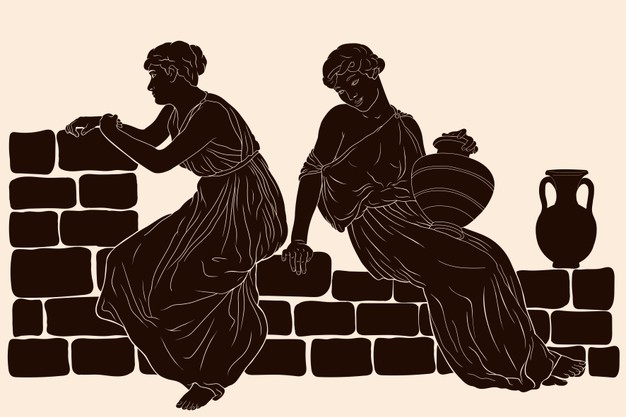 Deeming it audacious and unthinkable for a young woman of high social standing to volunteer herself for such a scandalous mission, the city leaders vehemently objected to the calculated plot. They warned Yehudit against pursuing her gambit as doing so would irrevocably strip her of all respectability and she would lose everything, however, their stern reproach could not discourage her. With absolutely no means of escape or defense available to them and their provisions dwindling rapidly, the dismayed city leaders realized they had no other choice but to despondently agree to Yehudit’s drastic plan. Having obtained their consent, Yehudit hurriedly left to prepare herself for her mission.
Deeming it audacious and unthinkable for a young woman of high social standing to volunteer herself for such a scandalous mission, the city leaders vehemently objected to the calculated plot. They warned Yehudit against pursuing her gambit as doing so would irrevocably strip her of all respectability and she would lose everything, however, their stern reproach could not discourage her. With absolutely no means of escape or defense available to them and their provisions dwindling rapidly, the dismayed city leaders realized they had no other choice but to despondently agree to Yehudit’s drastic plan. Having obtained their consent, Yehudit hurriedly left to prepare herself for her mission.
 When dawn came the next morning, Yehudit put on her finest clothes, modestly covered her face with a delicate veil, and taking her maidservant and a basket of aged cheese, bread, and strong wine with her, she fearlessly made her way to the enemy encampment and demanded to see Holofernes. The Syrian-Greek sentries did as she asked and escorted the two women to their general’s tent. Holofernes, surprised by the unexpected arrival of such a breathtaking woman and utterly captivated by her, eagerly asked Yehudit who she was and what brought her to see him. With a silent prayer to G-d, the cunning young woman answered that she came from the city and was prepared to betray her people in exchange for her own survival. She told the mesmerized Holofernes that she would help him defeat the beleaguered town by going to the gates each day and gathering information for him that would aid in his capture of the city. Intrigued by this enticing offer and by her bewitching intelligence and loveliness, the enraptured Holofernes proclaimed to his soldiers that Yehudit and her maid were to be given total freedom within the encampment and that anyone caught bothering the attractive young woman or her maidservant would be immediately executed. Fearful for their lives, the soldiers obeyed and did everything they could to avoid the two women.
When dawn came the next morning, Yehudit put on her finest clothes, modestly covered her face with a delicate veil, and taking her maidservant and a basket of aged cheese, bread, and strong wine with her, she fearlessly made her way to the enemy encampment and demanded to see Holofernes. The Syrian-Greek sentries did as she asked and escorted the two women to their general’s tent. Holofernes, surprised by the unexpected arrival of such a breathtaking woman and utterly captivated by her, eagerly asked Yehudit who she was and what brought her to see him. With a silent prayer to G-d, the cunning young woman answered that she came from the city and was prepared to betray her people in exchange for her own survival. She told the mesmerized Holofernes that she would help him defeat the beleaguered town by going to the gates each day and gathering information for him that would aid in his capture of the city. Intrigued by this enticing offer and by her bewitching intelligence and loveliness, the enraptured Holofernes proclaimed to his soldiers that Yehudit and her maid were to be given total freedom within the encampment and that anyone caught bothering the attractive young woman or her maidservant would be immediately executed. Fearful for their lives, the soldiers obeyed and did everything they could to avoid the two women.
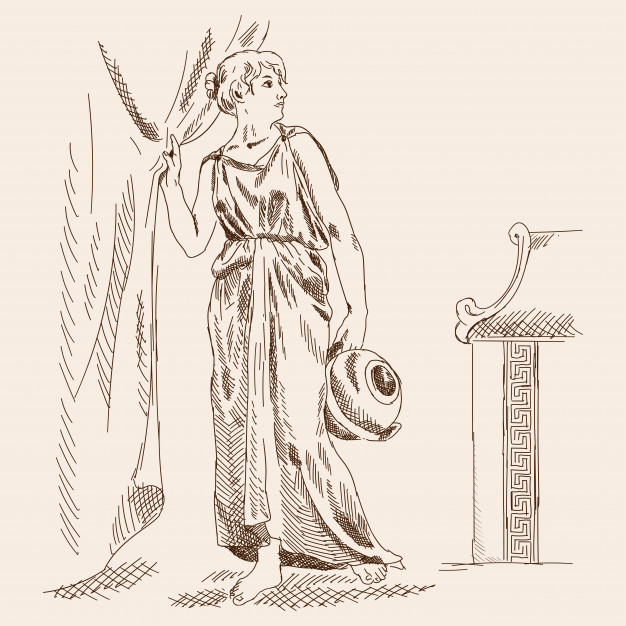 Having triumphantly charmed the ruthless general into granting them unrestricted access throughout his encampment, Yehudit moved onto the next phase of her plan. Each day, she went back and forth between the Syrian-Greek camp and the city gates, taking valuable intel she had learned in the camp back to her people and returning to Holofernes afterward with news of the deteriorating conditions within the hostage city. Holofernes, for his part, spent most of his time drinking or calling for Yehudit to come to him. Being a modest woman, Yehudit always made sure to come with her maid, frustrating the brutish general, who she’d then calm with exaggerated reports of his impending victory to keep him distracted until she could slip away safely. Thankfully, Holofernes was usually too drunk to understand her evasive maneuvers, and pretty soon, Yehudit’s efforts were rewarded when she noticed that she had become such a familiar figure in the encampment, she and her maidservant had completely stopped attracting attention from the soldiers. With Holofernes’ men now effectively ignoring them, Yehudit knew it was finally time for the last stage of her plan.
Having triumphantly charmed the ruthless general into granting them unrestricted access throughout his encampment, Yehudit moved onto the next phase of her plan. Each day, she went back and forth between the Syrian-Greek camp and the city gates, taking valuable intel she had learned in the camp back to her people and returning to Holofernes afterward with news of the deteriorating conditions within the hostage city. Holofernes, for his part, spent most of his time drinking or calling for Yehudit to come to him. Being a modest woman, Yehudit always made sure to come with her maid, frustrating the brutish general, who she’d then calm with exaggerated reports of his impending victory to keep him distracted until she could slip away safely. Thankfully, Holofernes was usually too drunk to understand her evasive maneuvers, and pretty soon, Yehudit’s efforts were rewarded when she noticed that she had become such a familiar figure in the encampment, she and her maidservant had completely stopped attracting attention from the soldiers. With Holofernes’ men now effectively ignoring them, Yehudit knew it was finally time for the last stage of her plan.
 The following afternoon, she went to Holofernes and told him that at last, the city had run out of provisions and it was nearly time to strike. Overjoyed by the knowledge that he’d soon crush the city, Holofernes ordered a feast with Yehudit as the guest of honor, and later that evening, Yehudit came to the general’s tent to find his table laden with various dishes and delicacies. He offered her his food, but she politely declined, stating that she had brought her own special food and wine for the occasion. Yehudit then pulled out the strong wine and the aged cheese that she packed in her basket and gave some to him. Thoroughly enjoying the flavors of both the cheese and the wine, Holofernes soon passed out on the ground, too deep in a drunken stupor to notice Yehudit unsheathing his sword and coming to stand over him. With another silent prayer to G-d, Yehudit raised the heavy sword in both hands and with a single swing, cut off Holofernes’ head. Taking her enemy’s head as proof of her deed, Yehudit wrapped her grisly prize in layers of cloth, and together with her maid, quickly snuck out of the camp and back to the safety of her city where she gave the head to the leaders so they could mount it to the city’s gates.
The following afternoon, she went to Holofernes and told him that at last, the city had run out of provisions and it was nearly time to strike. Overjoyed by the knowledge that he’d soon crush the city, Holofernes ordered a feast with Yehudit as the guest of honor, and later that evening, Yehudit came to the general’s tent to find his table laden with various dishes and delicacies. He offered her his food, but she politely declined, stating that she had brought her own special food and wine for the occasion. Yehudit then pulled out the strong wine and the aged cheese that she packed in her basket and gave some to him. Thoroughly enjoying the flavors of both the cheese and the wine, Holofernes soon passed out on the ground, too deep in a drunken stupor to notice Yehudit unsheathing his sword and coming to stand over him. With another silent prayer to G-d, Yehudit raised the heavy sword in both hands and with a single swing, cut off Holofernes’ head. Taking her enemy’s head as proof of her deed, Yehudit wrapped her grisly prize in layers of cloth, and together with her maid, quickly snuck out of the camp and back to the safety of her city where she gave the head to the leaders so they could mount it to the city’s gates.
 The very next morning at dawn, Holofernes’ hungover soldiers entered his tent to wake him only to discover their general’s decapitated body. Before long, word spread through the camp that the general’s head could be seen hanging on the gates of the Jewish city. Panicking at the sudden, disorienting loss of their commander, the disheartened Syrian-Greek army was in a state of total confusion when suddenly, fighters from the Jewish city came and ambushed them. Already leaderless and afraid, the enemy army quickly broke rank and ran for their lives, leaving behind enough supplies to feed the starving city, thereby ending the siege on Yehudit’s home.
The very next morning at dawn, Holofernes’ hungover soldiers entered his tent to wake him only to discover their general’s decapitated body. Before long, word spread through the camp that the general’s head could be seen hanging on the gates of the Jewish city. Panicking at the sudden, disorienting loss of their commander, the disheartened Syrian-Greek army was in a state of total confusion when suddenly, fighters from the Jewish city came and ambushed them. Already leaderless and afraid, the enemy army quickly broke rank and ran for their lives, leaving behind enough supplies to feed the starving city, thereby ending the siege on Yehudit’s home.
As the delighted Jews celebrated their victory and scavenged the abandoned encampment for remaining loot, Yehudit looked up at the sky and thanked G-d once more for giving her the strength to save the city. Grateful that her terrifying mission was now over, Yehudit went back to her quiet, peaceful life, and that is how her story ends.
Our dear friends, thank you so much for joining us today for this exciting retelling of brave Yehudit’s story. Learning about her life and history through our research gave us a renewed appreciation for this remarkable woman. She had so much courage and faith that even after thousands of years, her tale still continues to inspire generations of Jews today. We can only say that we truly respect her for the sacrifices she made and the risks she took for her people, so with that sentiment in mind, we hope that we were successful in passing on to our readers a little bit of our admiration for her and all the other important Hanukkah figures, as well as give you all something great to read before the holiday starts to help you get into a festive mood!
For each of you who are new to our blogs and for those of you who aren’t, if you enjoyed reading this article, please remember to share it with friends and family so others can enjoy it too!
May you all have a wonderful Hanukkah Sameach and we hope to see you again soon for our next article!
All the best,
Judaica WebStore
